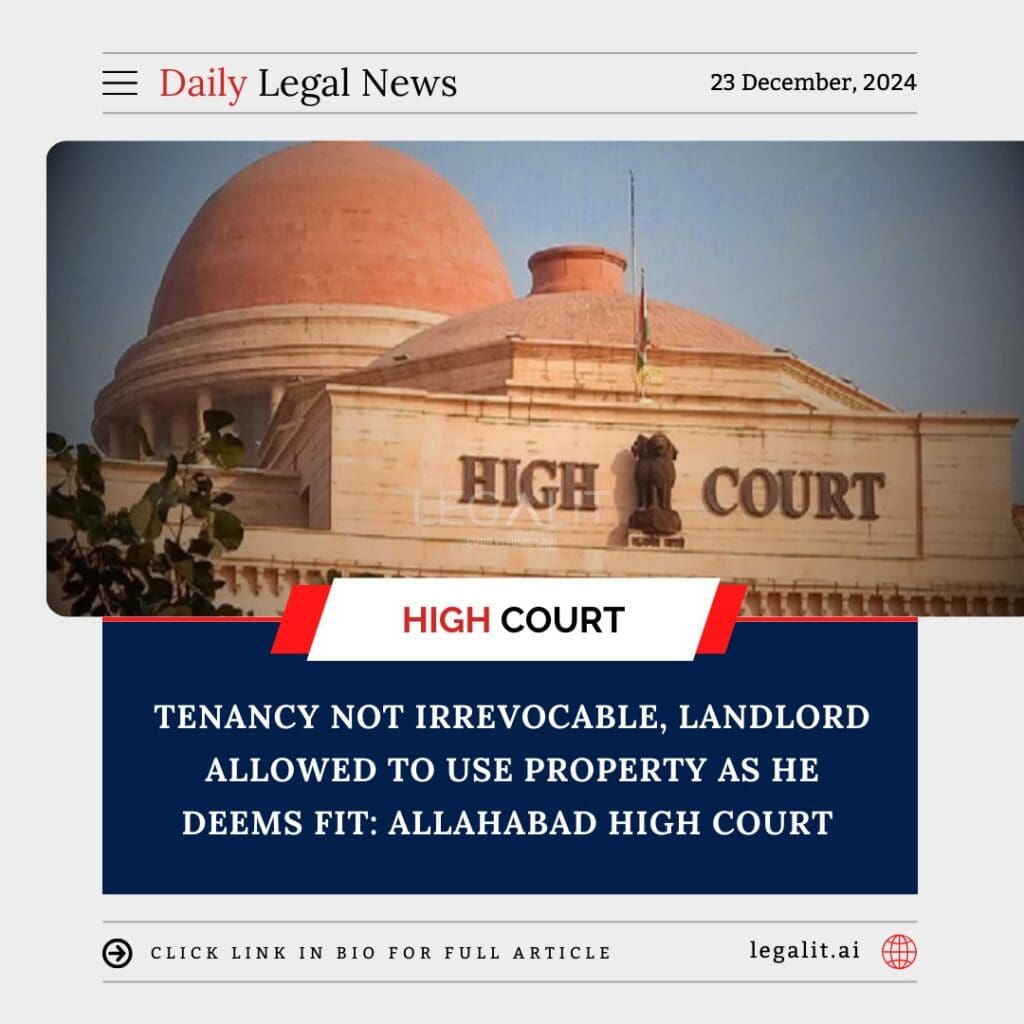
The Allahabad High Court has ruled that tenancy agreements are not irrevocable, affirming the landlord’s right to utilize their property as they see fit. This landmark judgment has significant implications for landlords and tenants in the region, as it emphasizes the supremacy of property rights over tenant agreements when such disputes arise. The court’s decision provides clarity on the balance between landlord rights and tenant protection under existing laws.
Background
The case involved a dispute between a landlord and a tenant concerning the use of a rental property. The landlord sought to reclaim the property for personal use, which the tenant opposed, citing the terms of the tenancy agreement. The tenant argued that the tenancy was a permanent arrangement and could not be revoked unilaterally. The landlord, however, contended that the tenancy agreement did not preclude them from reclaiming possession of the property when necessary, especially if the property was required for personal or commercial use.
After hearing both sides, the Allahabad High Court examined the legal principles surrounding tenancy agreements and the rights of property owners. The Court’s decision clarified that a tenancy agreement does not grant the tenant permanent, irrevocable rights over the property and that the landlord retains the right to use the property as deemed necessary.
Key Observations
Court’s Rationale
- Right of Landlord Over Property: The court reaffirmed that the ownership of property remains with the landlord, and the tenant’s right to occupy the property is conditional. It emphasized that landlords are not bound by a tenancy agreement indefinitely, particularly when they need the property for their own use.
- Temporary Nature of Tenancy: The Court acknowledged that tenancy agreements are typically temporary in nature and can be terminated under specific legal circumstances. This includes situations where the landlord requires the property for personal, familial, or business purposes.
- No Absolute Protection for Tenants: While the court recognized tenant rights, it clarified that these rights are not absolute and can be overridden in certain circumstances. This ruling suggests that tenants cannot claim permanent possession of a property, even if a tenancy agreement is in place, particularly if the landlord has legitimate reasons to reclaim the property.
Legal Framework on Tenancy
The court’s ruling also highlighted the need for tenancy agreements to be viewed within the context of property laws, where the landlord’s right to reclaim their property is protected under certain conditions. The ruling aligns with existing laws governing property rights, reinforcing the idea that tenants do not have an irrevocable claim on rented properties.
Legal and Policy Implications
Impact on Tenancy Laws
The ruling has significant implications for the future of tenancy laws in India. By emphasizing the landlord’s right to reclaim property, it calls attention to the importance of clear and enforceable tenancy agreements that outline the terms of property use and termination. It could lead to reforms that strike a better balance between protecting tenants’ interests and safeguarding landlords’ rights over their own properties.
Landlord-Tenant Disputes
This judgment may prompt a rise in disputes between landlords and tenants, especially in cases where landlords seek to terminate tenancies for personal or commercial use. It underscores the importance of well-drafted agreements that specify the conditions under which a tenancy can be terminated, and the rights of both parties involved.
Conclusion
The Allahabad High Court’s ruling that tenancy agreements are not irrevocable and that landlords have the right to use their property as they see fit strengthens the position of property owners. While tenants’ rights remain significant, the court’s decision emphasizes that these rights are not absolute, particularly when the landlord has legitimate reasons for reclaiming the property. This ruling serves as a reminder of the delicate balance between protecting tenant rights and upholding the fundamental rights of property ownership.